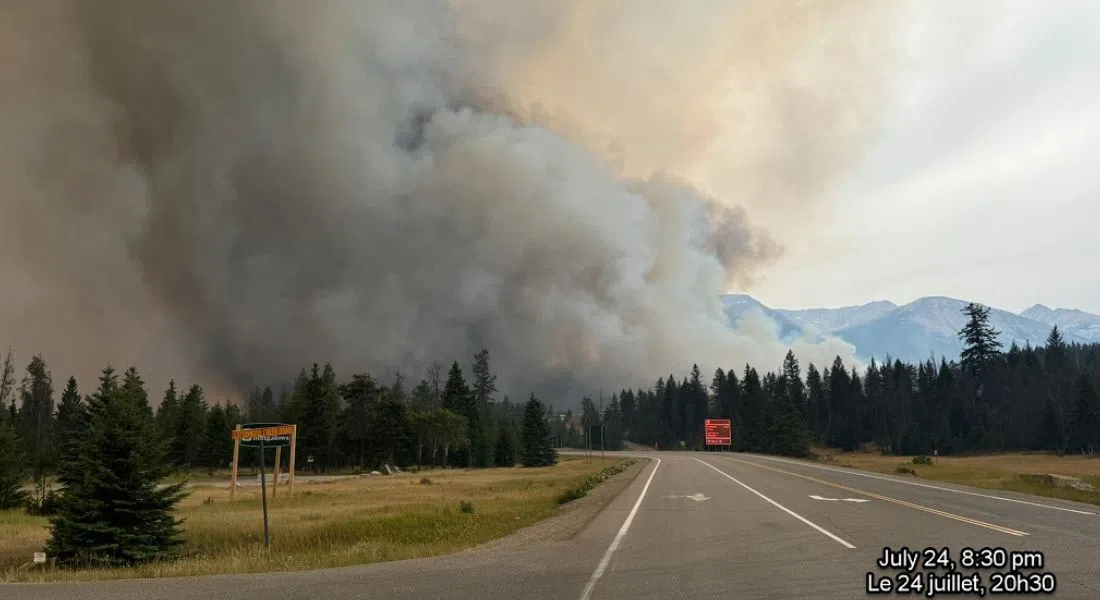Wildfires that devastated Jasper National Park took the number one spot in Environment Canada’s list of the most impactful weather events of 2024.
Jennifer Smith, National Warning Preparedness Meteorologist, says the wildfire cause $880 million in insured losses, making it Canada’s second costliest wildfire disaster after the 2016 Fort MacMurray fire.
“Thick smoke blanketed the skies, darkening Hinton, 66 kilometres away, to the point where the streetlights turned on during the day. Despite heroic efforts, 358 structures including homes, a historic church, and the iconic Lodge were destroyed.”
Second place on the list was taken by the hurricane season’s flooding effects on central Canada, and number three is held by western Canada’s plunge into a January deep freeze.
“Weather stations across central and northern Alberta and Saskatchewan saw lows ranging from -46 to -48. Alberta issued its first ever emergency power alert, as the cold strained the power grid to the breaking point. The cold claimed at least 36 lives in British Columbia, and it cost an estimated $180 million in damages.”
In at number four, were the atmospheric rivers in British Columbia, which caused flooding, landslides and road washouts.
Ranked number 5 was the hail event that handed Calgary over $1 billion in damage costs.
The summer of floods in southern Ontario come in at number six, and number seven is the record-high temperatures recorded in Artic communities, some reaching 34.8 degrees Celsius on August 7th.
Number 8 was secured by the wall of snow brought by a snowstorm in Cape Breton. Over 100 centimetres of snow fell in Sydney, Nova Scotia, and winds created drifts several metres high.
The discrepancy between the heat in the east and the cold in the west in June ranked at number nine. In Atlantic Canada, temperatures were well above 30 degrees, while western Canada saw unseasonably cool temperatures. Waterton Park plunged to -4 degrees Celsius, and snow arrived on June 18th.
In tenth place, the wildfires and evacuations that impacted western Labrador. June’s heat and dry winds prompted a wildfire southwest of Churchill Falls. The fire raced toward the town and forced 750 people to evacuate. Again, in July, new fires were ignited and forcing 7000 more residents to flee from Labrador City.





















